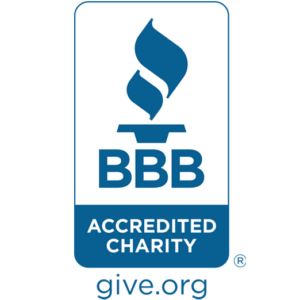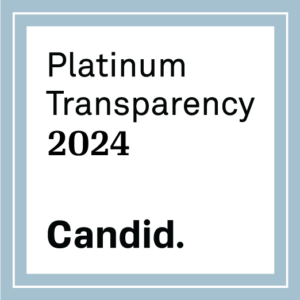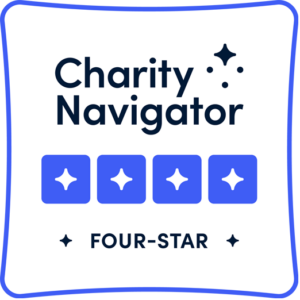World Hypertension Day: A Frontline Perspective
High blood pressure, or hypertension, is a serious health condition that affects 1 in 3 adults worldwide and increases the risk of heart attack and stroke—and, if you’re living with HIV, you are at greater risk of developing the condition. That‘s why hypertension is one of the health conditions that mothers2mothers (m2m) Mentor Mothers screen for when they meet with clients, whether in their homes or at health facilities.
In honour of World Hypertension Day (Friday, 17th of May), Millicent Magwa—m2m Spokeswoman and Community Mentor Mother Coordinator at the Ikhwezi Community Health Centre in Cape Town, shares her inspiring journey of managing both HIV and hypertension, highlighting the importance of empowerment, education, and community support.

Millicent, outside the Ikhwezi Community Health Centre in Cape Town, where she works as a Community Mentor Mother, helping other women and families to live healthier by sharing her own experience of living with both HIV and hypertension.
Interviewer: Millicent, can you start by telling us a bit about your role at Ikhwezi Community Health Centre and the work you do?
Millicent: I’m the Community Mentor Mother Coordinator at the Ikhwezi clinic, located about 50 kilometres from Cape Town. My main job is to support pregnant and breastfeeding mothers living with HIV. We work to make sure their babies are born HIV-free and stay that way. This is called “prevention of mother-to-child transmission” or PMTCT.
HIV is just one of the health challenges our clients face. Tuberculosis (TB) is a big concern, because it can be more serious for people living with HIV. Poverty also plays a role – it makes vulnerable people more at risk to illnesses like high blood pressure and diabetes. To truly help our clients be healthy, we need to address all their health needs, not just HIV.
Interviewer: Can you share your personal journey of managing both HIV and hypertension?
Millicent: When I found out I had hypertension, , it was overwhelming. I was already living with HIV, and struggled with the idea of managing two chronic conditions simultaneously. Initially, I didn’t understand why I had to take additional medication for hypertension. However, everything changed when I started working for mothers2mothers in 2020.
Interviewer: How did your experience with mothers2mothers impact your approach to managing hypertension?
Millicent: Working with mothers2mothers provided me with comprehensive training and the education I needed to manage noncommunicable diseases like hypertension and diabetes. I felt empowered with the knowledge and resources I needed to put my health and well-being first. I began adhering to my medication and implementing lifestyle changes to manage my hypertension effectively.
Interviewer: Can you tell us more about the lifestyle changes you’ve implemented?
Millicent: I prioritise self-care by taking my medication diligently, and I began exercising more. I do this by walking to and from work. I also engage in community outreach activities, which also serves as exercise. I normally spend in total two hours on my feet each working day. Additionally, I pay attention to what I eat and make better choices when it comes to preparing my food and how I cook. I am eating more vegetables, lean meats and have reduced my alcohol intake.
Interviewer: As a community health worker, how do you support others living with HIV to prevent or manage hypertension effectively?
 Millicent: I educate my clients about the importance of stress management, regular exercise, and healthy eating habits to prevent hypertension. However, clients often struggle to access services at the clinic due to various reason—including stigma and discrimination associated with the condition, the distance and cost of the journey to the health facility, and the long waits for care once they are there. Through door-to-door household visits, we can identify undiagnosed cases of hypertension, educate clients, and support them when they are referred to the clinic for further treatment. We’ve found that peer support and community-driven activities play an important role in encouraging our clients to take control of their health, especially after they’ve overcome these initial barriers to care.
Millicent: I educate my clients about the importance of stress management, regular exercise, and healthy eating habits to prevent hypertension. However, clients often struggle to access services at the clinic due to various reason—including stigma and discrimination associated with the condition, the distance and cost of the journey to the health facility, and the long waits for care once they are there. Through door-to-door household visits, we can identify undiagnosed cases of hypertension, educate clients, and support them when they are referred to the clinic for further treatment. We’ve found that peer support and community-driven activities play an important role in encouraging our clients to take control of their health, especially after they’ve overcome these initial barriers to care.
Interviewer: What impact have you seen from integrating noncommunicable disease screening programmes into your work?
Millicent: Implementing a more diverse range of primary health care services, and being able to bring testing for high blood pressure and diabetes to the community, has really changed health service delivery in our community. We have been able to identify clients and other family members who are suffering from hypertension and have been able to refer them for further treatment. By being visible in the community, we have found others coming forward to get more information from the Mentor Mothers. This was not always the case in the past, as there are still a lot of stigma in the community. People are a lot more aware of their health and well-being, and are taking responsibility for themselves. I believe as Mentor Mothers we are playing an important role in driving this positive change in our community.
Interviewer: On World Hypertension Day, what message would you like to share with our readers?
Millicent: I encourage everyone to prioritise self-care, adhere to treatment, and embrace lifestyle changes to manage hypertension effectively. Education and ongoing support are key in overcoming the challenges of living with chronic conditions like hypertension. Together, we can create healthier communities one step at a time.
Millicent’s story is a powerful reminder that with knowledge, support, and a commitment to healthy habits, we can all live fulfilling lives, even with chronic conditions. Let’s celebrate World Hypertension Day by getting informed, taking control of our health, and creating healthier communities together.























